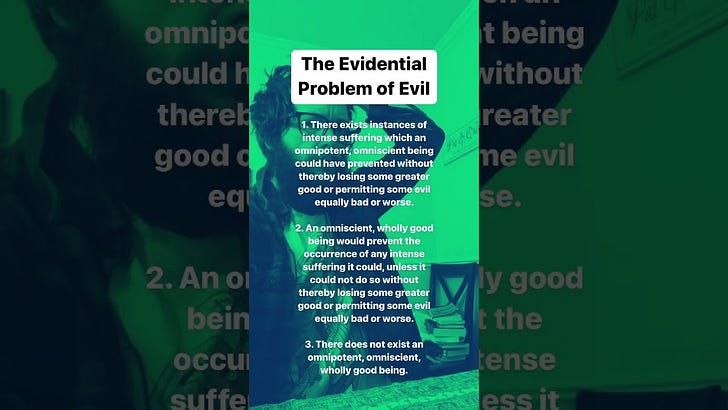2 Quick Shots at the Evidential Problem of Evil
Here is a formulation of the evidential problem of evil coming from William Rowe.
And here are two quick shots against this argument (neither original to me).
While many theists challenge 1 by claiming we are not in a good epistemic position to be justified in believing there are such instances of suffering, it strikes me that 2 is itself suspect if not false. Plausibly, if we have significant libertarian freedom then God may visit suffering upon us as the best available means for attaining salvation but which may ultimately be ineffective. In such cases no greater good was actually had, thus God could have prevented the suffering without the loss of greater good (or permitting some evil equally bad or worse).1 Nevertheless, we should take God as justified in visiting such suffering — or so I believe.2
Another consideration is one of “general policy.” Say God has good (that is, “God justifying”) reason for letting natures take their course in the general run — that is, without divine intervention or interference concerning their interaction — even knowing much suffering will result. Such a general policy, quite plausibly, is justified by the overall good it generates or sets the conditions for. Almost certainly God could intervene in virtually any one instance of suffering without subverting the general policy, but even more certainly God could not intervene in all instances of suffering without subverting the general policy. God will have to draw the line somewhere and probably that line is arbitrary. This means some instances of suffering will fall on the “actuality side” that could have been prevented without the general policy being subverted but nevertheless we should take God to be justified in permitting this because some line must be drawn and because the general policy justifies God’s refraining.3
Now one might say it would amount to the loss of the possibility of some greater good but I don’t think that would deter this line of response.
Like most theists, I don’t believe the free will (in any of its variants) response covers all instances of suffering. But that it plausibly covers some is sufficient for our purposes here.
Of course, if people falling on the actuality side suffer unfairly because of where the lines were drawn, then we expect God will compensate them somehow (afterlife considerations).



